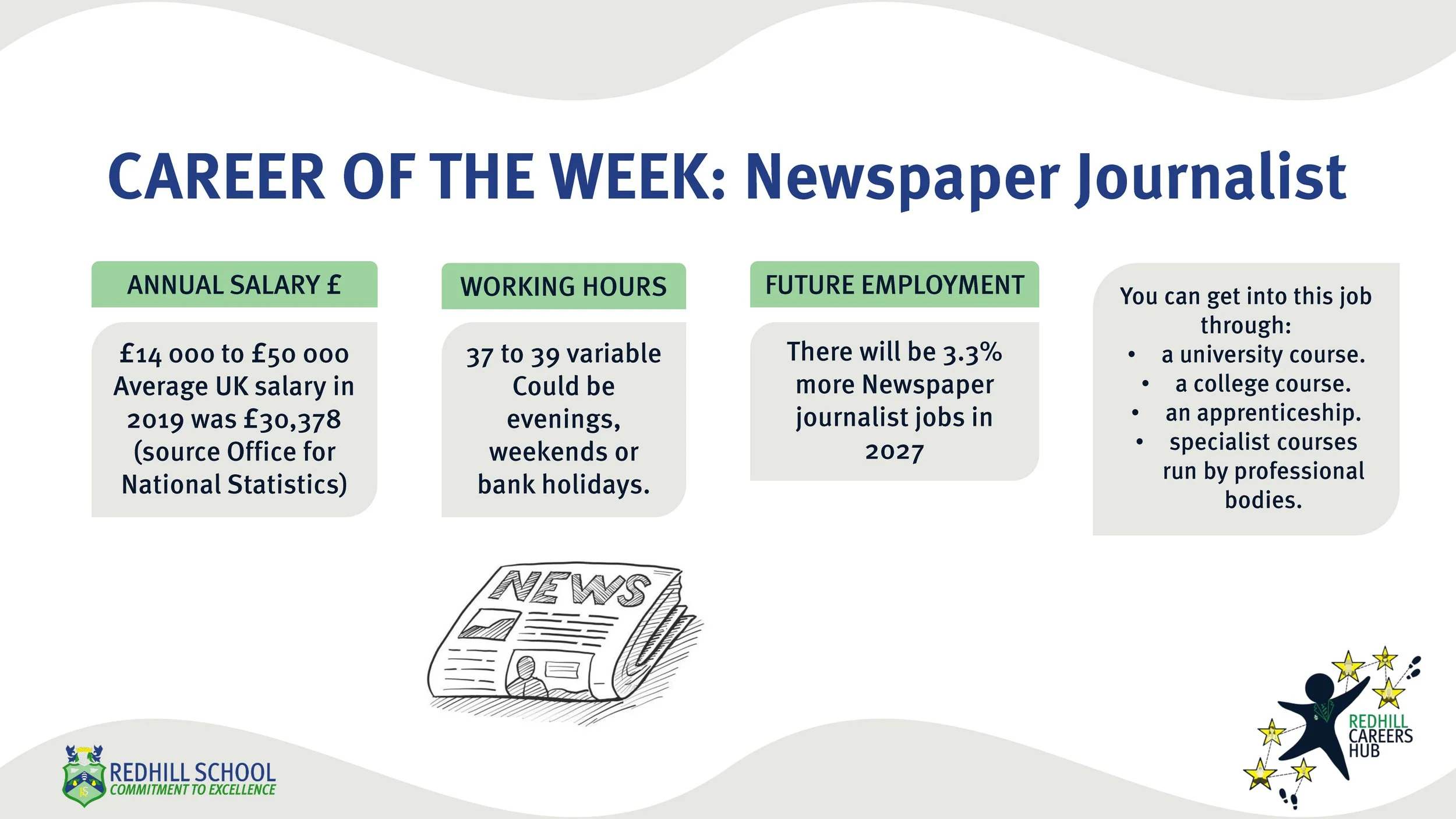Career of the week: Newspaper Journalist
Day to day tasks
You could:
investigate a story as soon as it breaks
follow up potential leads and develop new contacts
interview people face-to-face and over the phone
attend press conferences
record meetings and interviews using recording equipment or shorthand
research and come up with ideas for stories and features
write up articles in a style that will appeal to the reader
sub-edit other reporters' articles for publication online and in print
gather and edit content produced by the newspaper's users
Working environment
You could work in an office or visit sites.
Your working environment may be emotionally demanding and you'll travel often.
You can get into this job through:
a university course
a college course
an apprenticeship
working towards this role
specialist courses run by professional bodies
University
You may find it useful to have a degree in a subject like journalism or English. This will help you develop the skills you'll need as a journalist.
You could also do a postgraduate course in journalism. Some of these are accredited by the Professional Publishers Association.
Entry requirements
You'll usually need:
2 to 3 A levels, or equivalent, for a degree
a degree in any subject for a postgraduate course
For more information
College
You could do a college course, which would teach you some of the skills and knowledge you need in this job. Relevant qualifications include Level 3 Diploma in Journalism or Level 3 Diploma in Multimedia Journalism.
Some colleges offer the Level 3 Certificate in Foundation Journalism and courses in Shorthand, accredited by the National Council for the Training of Journalists (NCTJ).
Entry requirements
You'll usually need:
4 or 5 GCSEs at grades 9 to 4 (A* to C), or equivalent, for a level 3 course
For more information
Apprenticeship
Higher apprenticeships relevant to this role include:
Level 5 journalist
Level 7 senior journalist
For more information
Work
You could start as an office assistant or trainee reporter on a local or regional newspaper.
You'll need a minimum of five GCSE grades 9 to 4 (A* to C), including English, or equivalent qualifications. Many recruits have A levels or degree level qualifications.
Volunteering and work experience
Competition for jobs is strong, and you'll need to show you've got writing experience. You'll find it useful to have examples of your published work in a portfolio, especially if these include your name as the author.
To build up your experience you can:
volunteer for student and community newspapers
write your own blog and have an online presence on social media
submit articles and reviews to local papers or websites
Other routes
You can study a range of professional qualifications in journalism, accredited by the National Council for the Training of Journalists (NCTJ). These are available either online or part-time at a training centre.
If you have a degree, you may be able to do a Fast Track NCTJ Diploma in Journalism course offered by National Council for the Training of Journalists.

